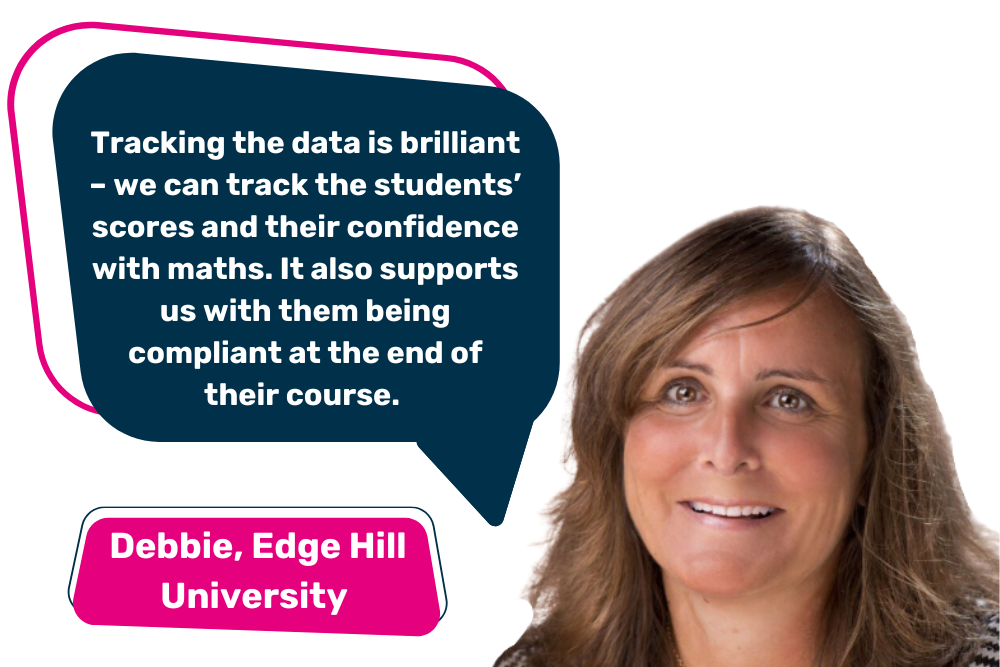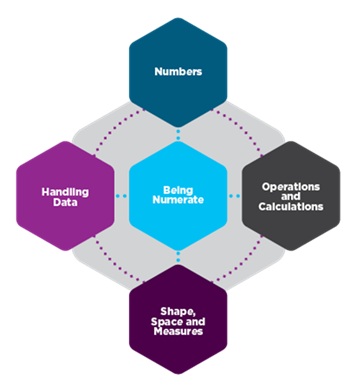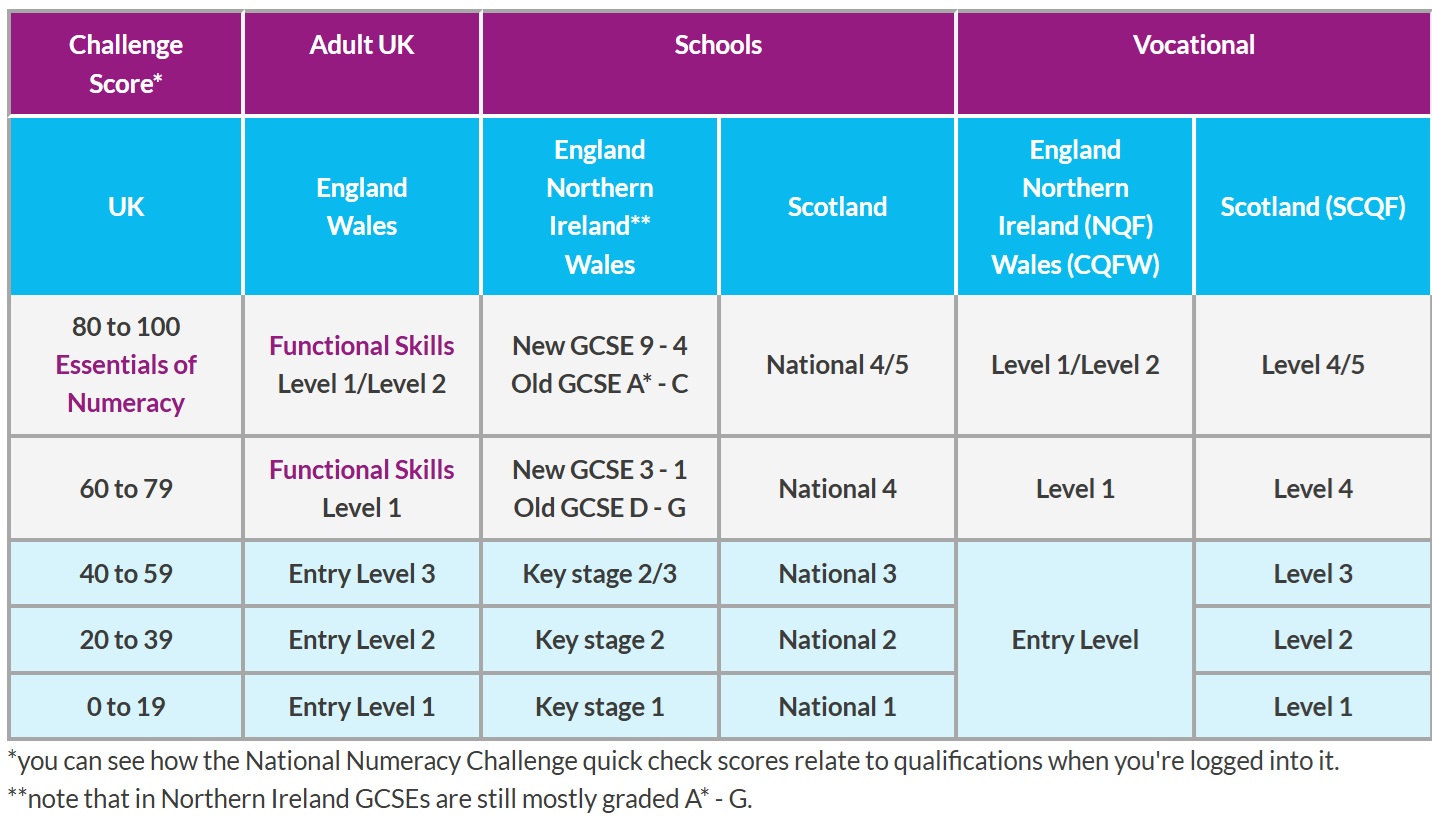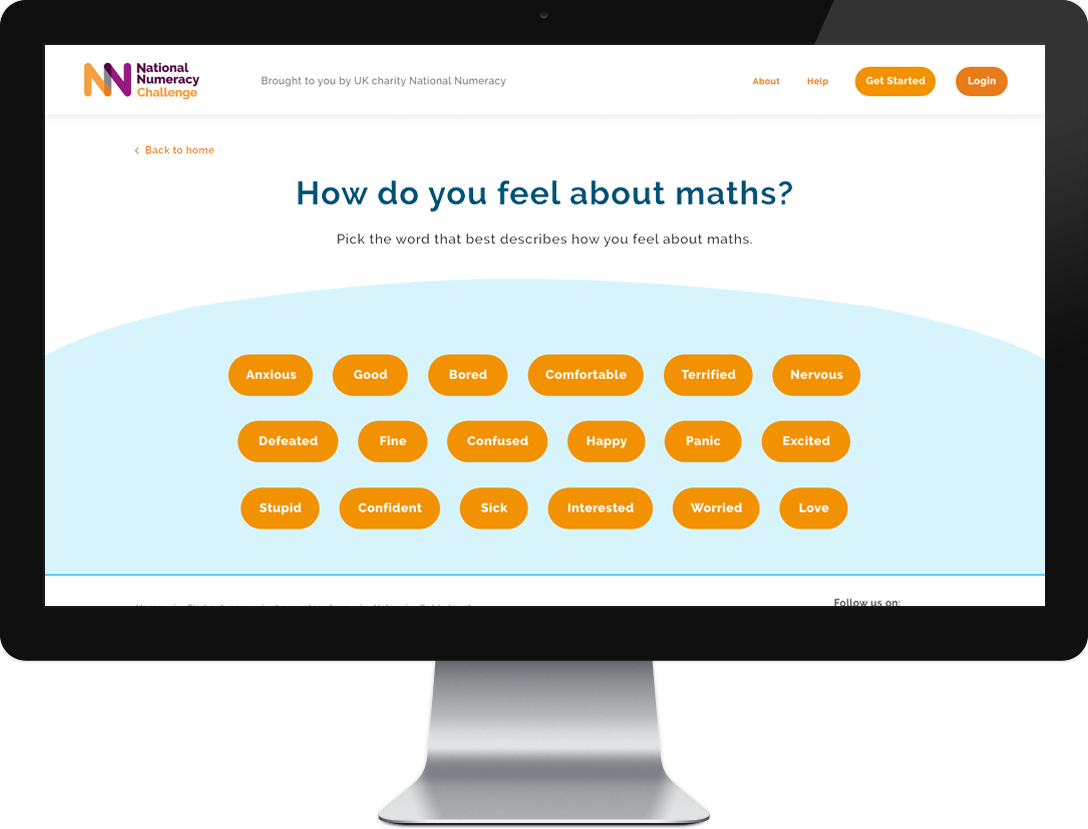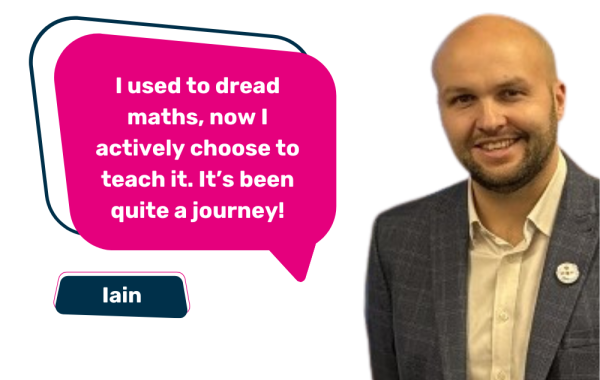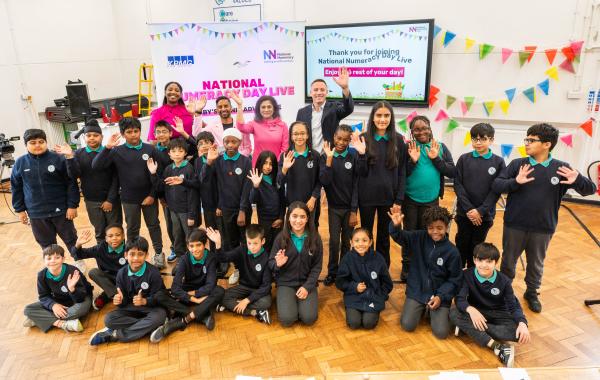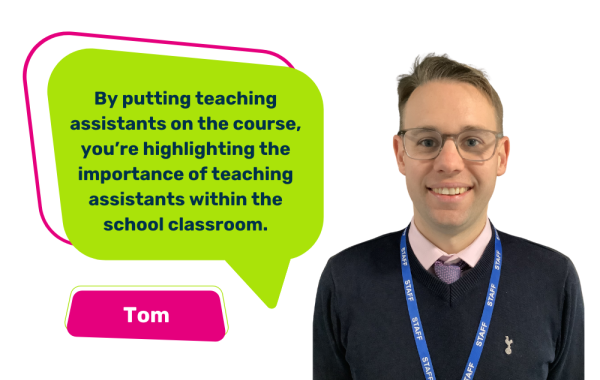In 2013, National Numeracy created The Essentials of Numeracy – the framework of the basic maths skills that everyone needs to use numbers and data to make good decisions at work and at home.
National Numeracy worked with employers and maths experts to develop this, and then in 2017 partnered with Cambridge Mathematics, to confirm that the content covers the core skills that adults and secondary school pupils need to be confident and competent with numbers in daily life.
The Essentials includes skills like being able to understand percentages and manage your money, but does not include anything about algebra or trigonometry.
The National Numeracy Challenge learning platform is designed to assess the skills and confidence of adults and support improvement. The Challenge can be used to confirm when an individual has The Essentials of Numeracy – a sound understanding of basic functional maths.
Ensuring that trainee teachers develop the necessary understanding of fundamental numeracy skills has been an important requirement for Teacher Training providers since the abolishment of pre-entry tests in autumn 2019.
Since then, National Numeracy have been supporting providers to use the National Numeracy Challenge to determine when their students have developed The Essentials of Numeracy.
National Numeracy’s online Challenge Tracker, refreshed every 24 hours, is a fantastic way to gain an insight into the confidence and skills levels of students. It helps to quickly and easily determine if they have the fundamental numeracy skills needed for their course and helps to offer tailored support if needed.
National Numeracy spoke to Debbie Hooton, Primary Mathematics Subject Lead and Senior Lecturer at Edge Hill University, about the programme and its benefits for both students and the university.
Why did you start using the National Numeracy Challenge at Edge Hill?
When the skills tests were abolished by the government we needed an indicator of the student teachers’ maths skills. The onus was put on universities to make sure the students had basic numeracy skills when they finished their ITE (Initial Teacher Education) programmes.
Someone at National Numeracy recommended the National Numeracy Challenge, which I know quite a lot of other ITE providers use as well, and it seemed to fit the bill.
The students come to us with a GCSE in maths, but some of them haven't got any further than that, so we wanted to identify their gaps in subject knowledge and help them develop their sense of maths identity from there.

